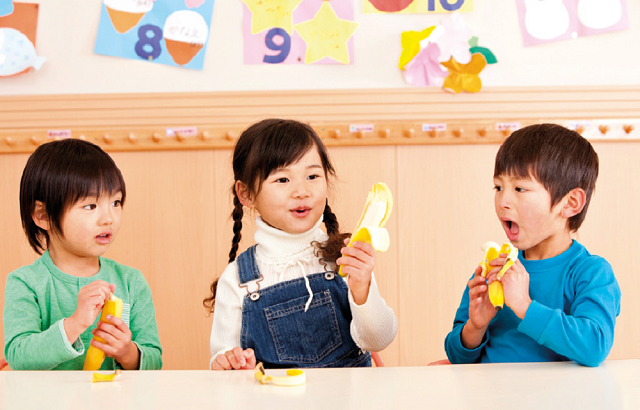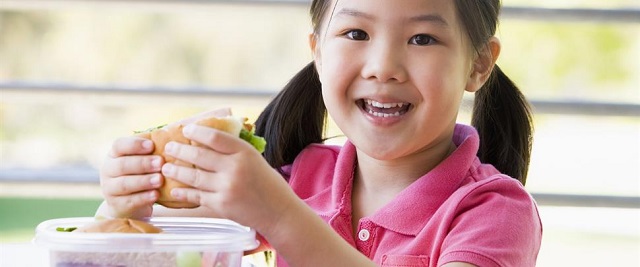Healthy Meals in Child Care Centres Programme​
Going to child care is a new and often a scary experience for children. Before your child starts attending a child care programme, spend a few weeks talking to him about the experience.
Tell him about how exciting it will be, how he will learn many new skills, and make many new friends.
Reassure him that there will be teachers to look after and take care of him, and that there will be lots of new toys to play with.
Visit the centre with your child and familiarise him with the place, so that he will not be frightened on his first day.
If your child needs you to, accompany him/her for the first day (provided the centre allows this). You can leave once he settles in and starts to take an interest in the surroundings and the people around him. Do not ​hang around too much, as this will make it harder for him to let go.
Your child may cry. This is normal. Reassure him that you will be back in the evening to bring him home. Once he is familiar with the routine and knows that you will be there after school each day, he will gradually adjust to attend lessons at the child care centre.
Healthy eating at the child care centre
Research has shown that when it comes to food, children develop their preferences for food and taste mostly before and during their preschool years, and that these eating habits and preferences tend to stay with them as they grow up. The preschool phase is the best time to help your child inculcate good eating habits that can benefit him for life.
If your child attends a child care programme, he probably takes at least two out of three meals a day there. This is why the child care centre also plays an important role in educating your child about nutrition, and shaping his eating habits.
To help child care centres provide healthy meals to children and cultivate healthy eating habits among them, HPB has introduced the “Healthy Meals in Child Care Centres Programme” (HMCCP).

There are two parts to this programme - food service and nutrition education.
1. Food Service
Participating child care centres are required to comply with food service guidelines which aim to cut down fat, sugar and salt, and serve whole grains, fruits and vegetables in the meals; and serve healthy set meals. These healthy set meals incorporate the appropriate portions of food from the four main food groups - brown rice & wholemeal bread, meat & others, fruits and vegetables. This ensures that when children consume meals at the centres, they will receive the right nutrients necessary for their growing needs.
2. Nutrition Education
Participating child care centres are provided with guidelines to educate children about healthy eating. The education is done through curriculum, exhibits at the centres, involvement of parents as well as field excursions for the children.​ Educational wall murals are installed in the child care centres to remind the children to eat healthily.
Under HMCCP, culinary training as well as consultation with nutritionists and professional chefs are provided for child care centres. The cooks are advised on menu-planning and are trained on healthier cooking methods. They are also taught how to prepare healthier ingredients such as brown rice and the appropriate portioning of food for the children. HPB monitors participating child care centres regularly and provides feedback for continuous improvement.

Choose for your child a child care centre that participates in HMCCP.
CHERISH Junior Award
A CHERISH Junior School provides a health-promoting environment for your growing child. (CHERISH refers to Championing Efforts Resulting in Improved School Health).
The CHERISH Junior Award recognises child care centres, kindergartens and schools that have done well to promote and improve the physical, social, mental and emotional well-being of all students, staff and the school community.
